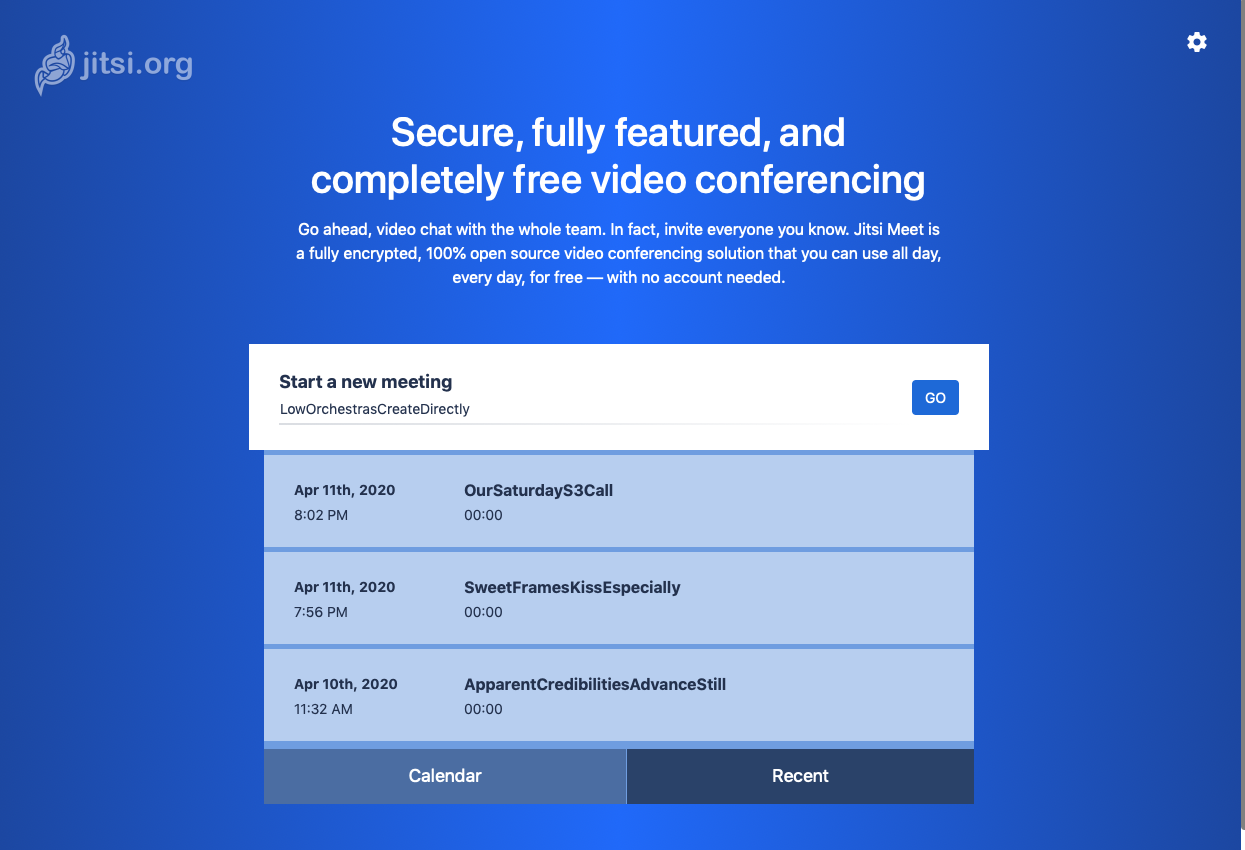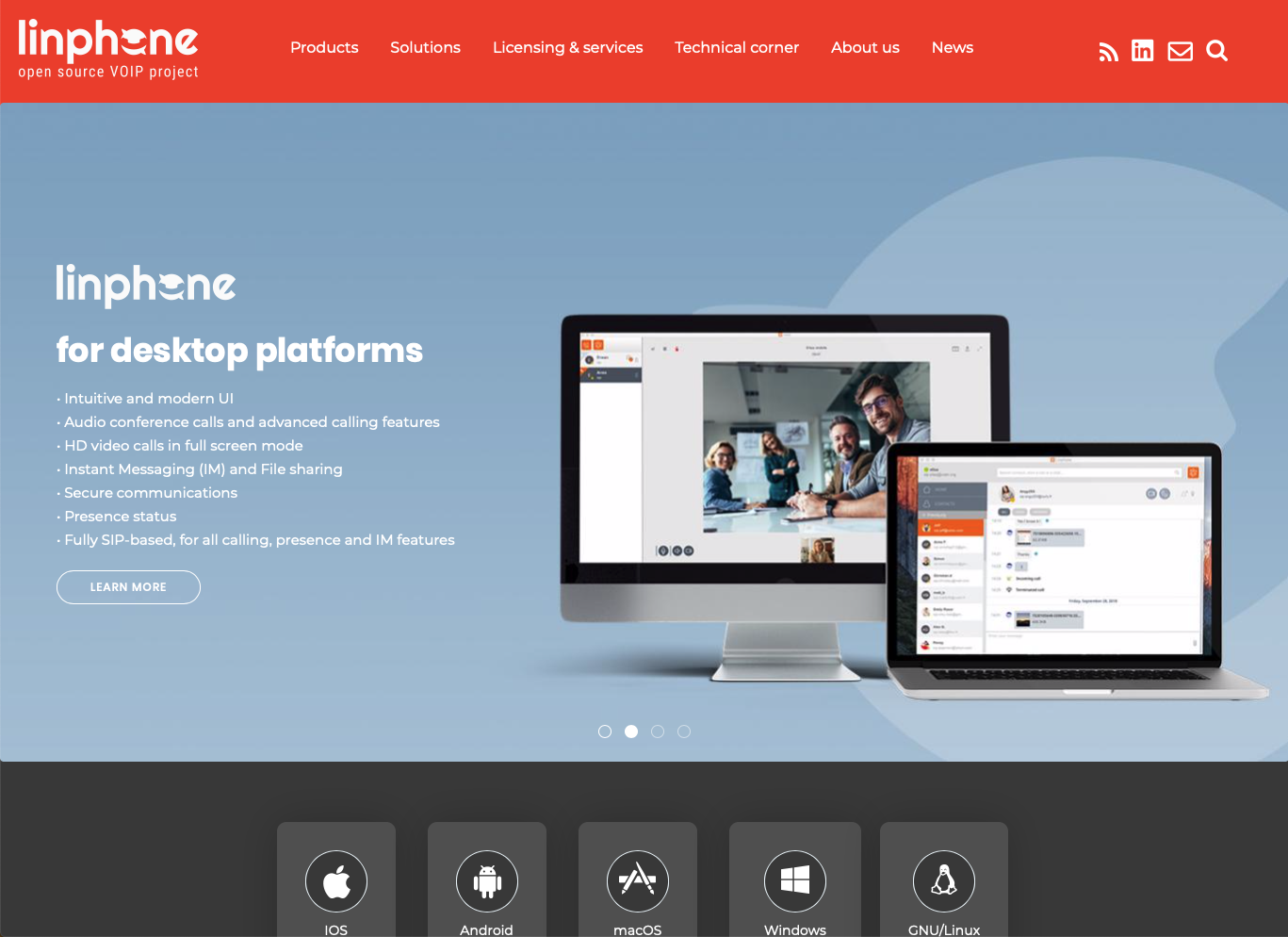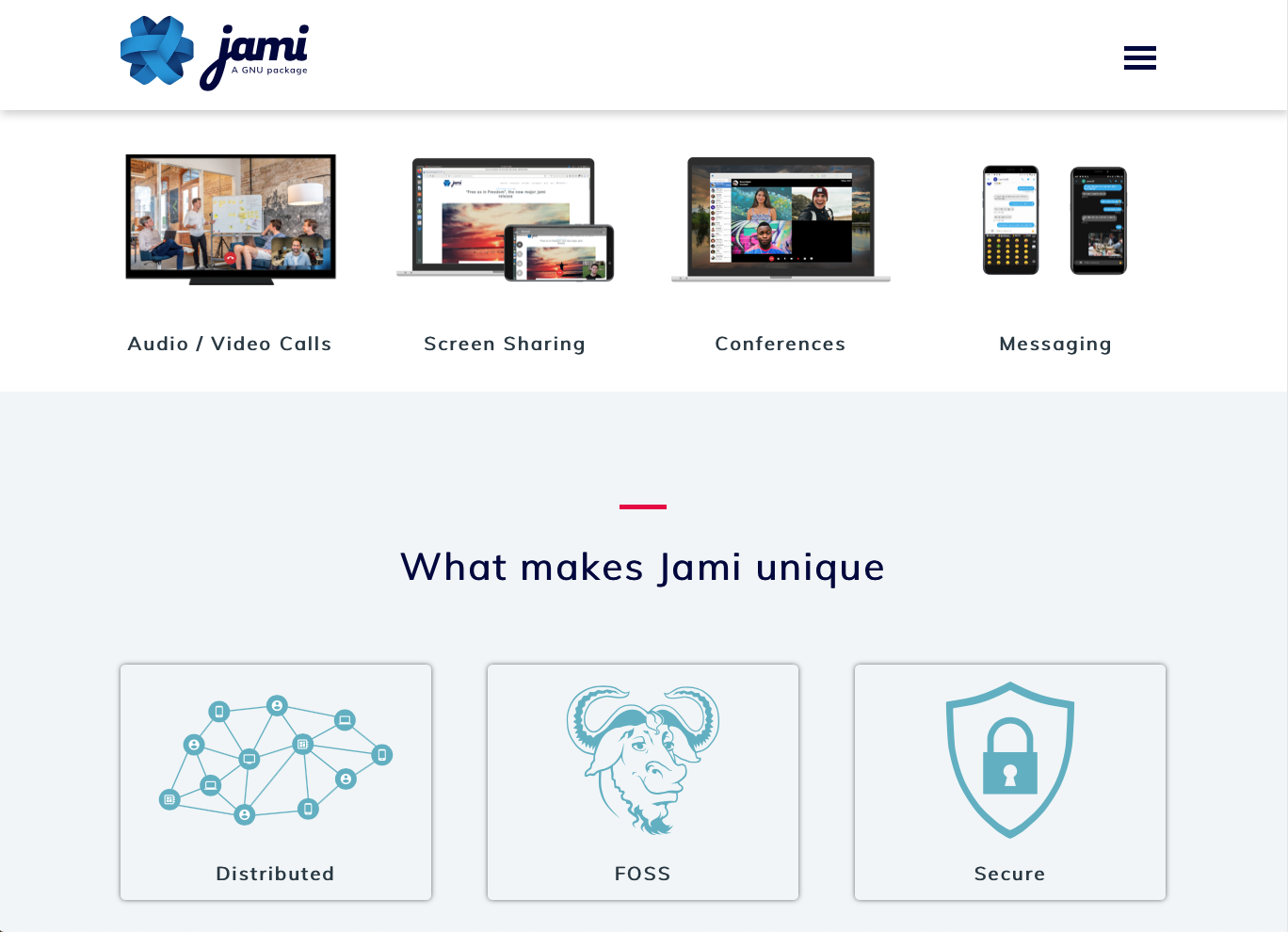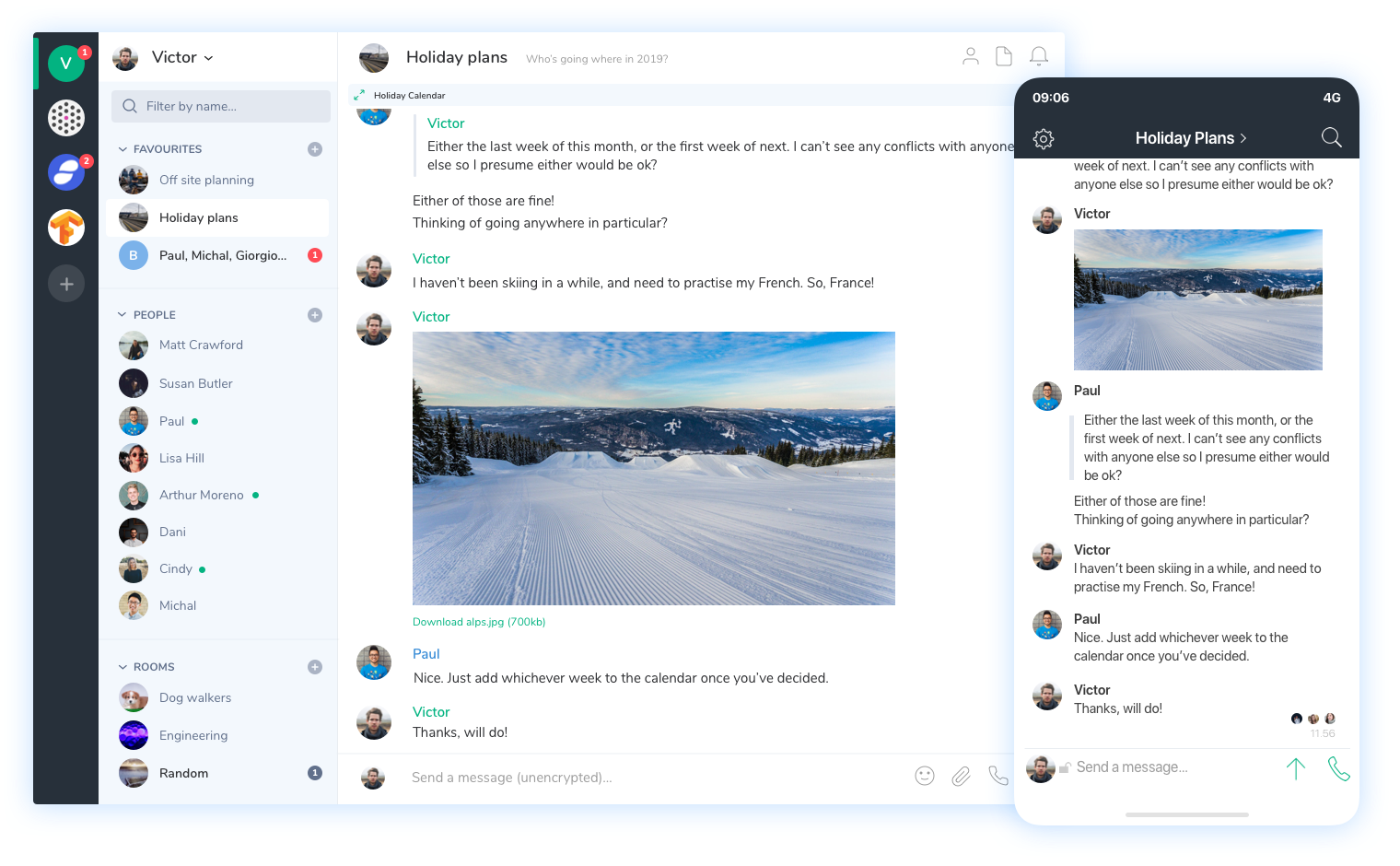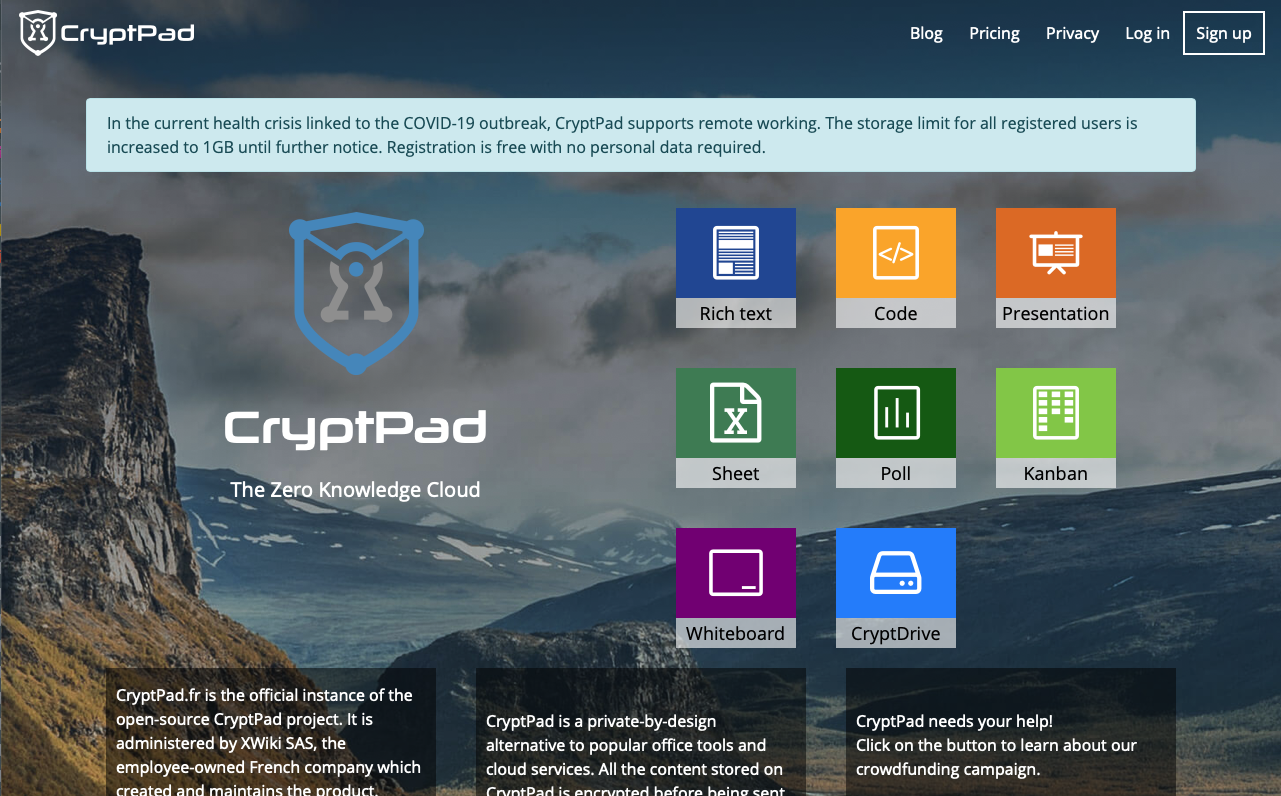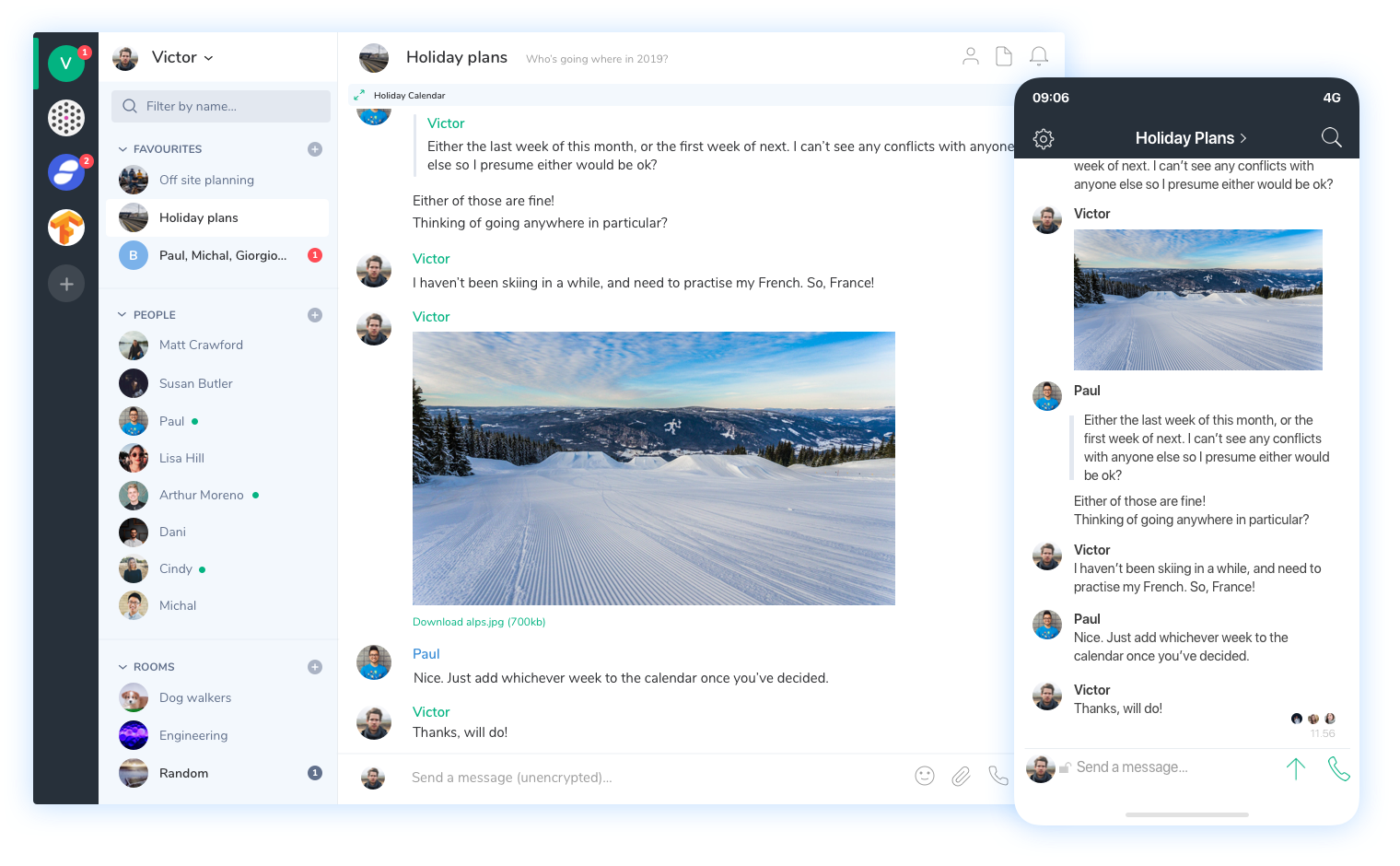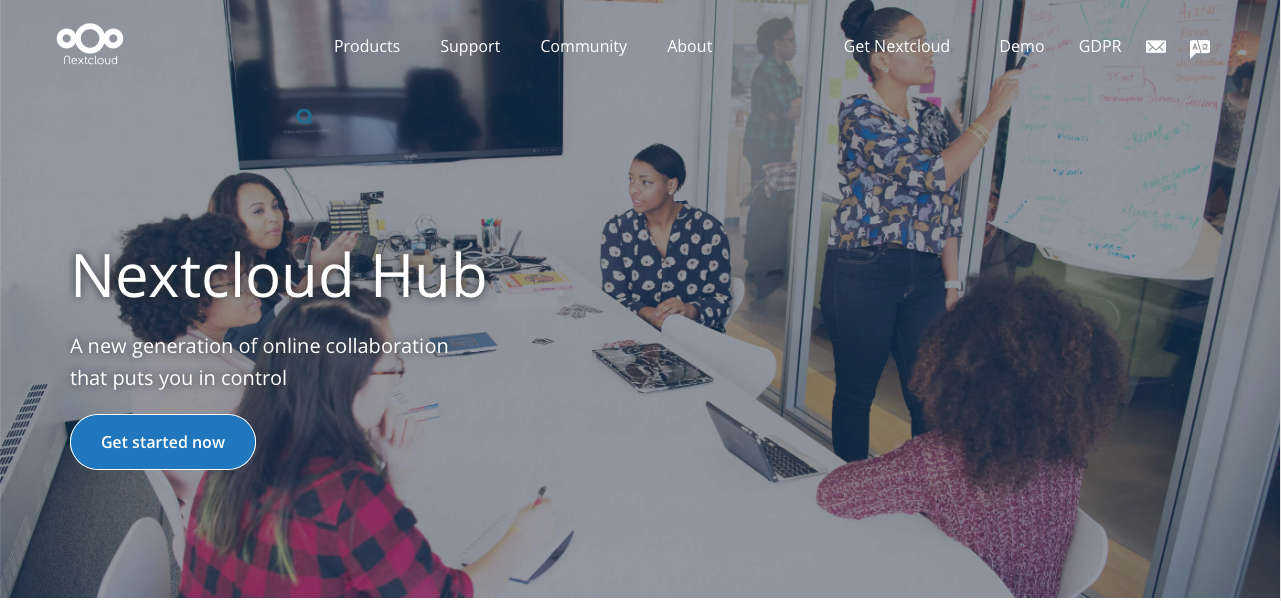Open Source Tools for Remote Collaboration
In the last couple of weeks, families, friends and businesses alike have discovered a need for collaboration tools, such as audio and video conferences, chatrooms, and collaborative document editing, but the topic of private and security has been largely ignored in the rush to find any solution at all.
Now that things are slowly becoming the new normal, we need to consider these issues, lest we end up in a world with even less openness, privacy and security than before, because we enable a few actors to concentrate even more power over that market than before.
You’re probably aware of the current string of Zoom’s privacy and security issues, which is a healthy reminder that privacy and security is not at the heart of proprietary software. Also with proprietary software you’re often out of luck when you need to change a service and want to take your data with you.
Fortunately we live in a time where there are many great open source tools and platforms that are on par with their proprietary competition when it comes to usability and features. You don’t even have to run your own server (though you can), because most of them either provide free services, or reasonably priced hosting – just for an example compare Modular’s hosted Riot.im for $1.50 per user per month to Slack’s $6.25 – $11.75.
In this curated list you’ll find a choice of communication tools (voice and video conferencing and group messaging/chat), platforms for collaborative document editing, productivity suites, tools for decision making and other tools and services to bring it all together..
Where available, I mentioned hosted services and platforms for those prefer to just get started without bothering with all the technical details.
If you know of another product that might fit on this page, let me know. Note that I did not include services like Onlyoffice or Collabora Online, which do not provide a free self-hosted version of their software.
Please keep in mind that while most of the tools here provide free services, they still have expenses to provide that free service. Consider donating to them if you use their service on a regular basis, and you have the means to do so.
Jitsi Meet
Jitsi Meet is a free and open source video conferencing solution that comes with screen sharing (so we all can continue having those engaging powerpoint-karaoke sessions), collaborative document editing, and text chat.
You can simply start a free call from your browser on the Jitsi Meet site without a log in, and invite others by sharing the URL (you can still password-protect that call), or download the server and
Linphone
Linphone offers a softphone (VoIP-Client) for voice and video calls, web conferencing, instant messaging, and file sharing. When you run the Flexisip server, you also get group messaging. Linphone runs in all modern browsers, apps are available Android, iOS, Linux, macOS and Windows.
To use Linphone, you need a SIP address, which you might already have (e.g. from your telephone provider), but you can also get one for free at linphone or run your own Linphone Flexisip server should you want your own URL in your SIP address.
Jami
Jami is a GNU package for voice and video calls, text messaging, teleconferencing and media sharing. It’s end-to-end encrypted, and doesn’t need a server to run. Clients are available for Android, Android TV, iOS, Linux, MacOS and Windows.
Organizations who need Single Sing-On and other user management features might want to consider the Jami Account Management Server, which is still in Alpha stage.
Riot
Riot is a free and open source chat app (like Slack) that runs from your browser and also provides apps for Android, iOS, Linux, MacOS and Windows. Riot has end-to-end encryption, and offers text chat, voice and video conferencing, file sharing, and bridging to IRC or Slack for seamless communication with users of other services.
You can register a free account on matrix.org, download Riot and host your own server, or rent one at modular.imunder your own URL for the exceptionally nice price of $1.50 per user per month. That’s pretty hard to beat.
Modular includes bridges to Slack, IRC and Gitter to seamlessly connect to users of that platform, a few bots for inserting memes and interacting with Github and Travis. Modular also integrates Jitsi for video and audio conferencing and and screen sharing, etherpad for collaborative editing, grafana for analyzing and visualizing data, and Google Calendar, among other things.
Riot is built on Matrix, an open standard for secure, decentralized real-time communication, the website says that in addition to IRX and Slack there are also bridges available for Gitter, Telegram, Discord, WhatsApp, Facebook, Hangouts, Signal and many more, so I expect more bridges will become available to Modular eventually.
Etherpad
Etherpad is a real-time collaborative editor for documents that can accommodate up to thousands of simultaneous real time users. It has a real-time chat next to the document, and allows import of documents, as well as export to various formats (including Microsoft Word, PDF and HTML)
You can run your own Etherpad instance, or simply select one of the publicly available instances and create a new pad. Not that some instances remove the pad after a given (or selectable) time.
Etherpad is available on sandstorm and Cloundron if you want to run your own instance.
CryptPad
CryptPad is a realtime collaboration platform that contains editors for rich text, presentations and spreadsheets, kanban boards, whiteboards, file sharing and polls.
Cryptpad is private-by-design, so all the content is encrypted before it is sent, and personal data is not required. You can either use the free service or run your own server.
Cryptpad is the simplest way I am aware of to set up a shared workspace e.g. for a call, or even inside a call, precisely because it does not require any personal information. The server is hosted in France, so inside GDPDR territory.
Wekan
Wekan is an open source kanban tool, similar to Trello, it even can import Trello boards and supports LDAP. Here’s a list of features, and an example board. Paid commercial support is available if desired.
Wekan is available on a wide range of platforms, Wekan-ready paid services include cloudron.io, indie host and Scalingo.
Nextcloud
Nextcloud Hub is a suite of open source online collaboration products that contains – among other things – chat, peer-to-peer voice and video calls, screen sharing, shared contacts and calendars, and support for collaborative document editing (through ONLYOFFICE or Collabora Online). Clients exist for Android, iOS, Linux, MacOS and Windows. You can install your own server or fall back on paid hosting hosting services, and, if necessary, even use a high performance backend for voice and video.

